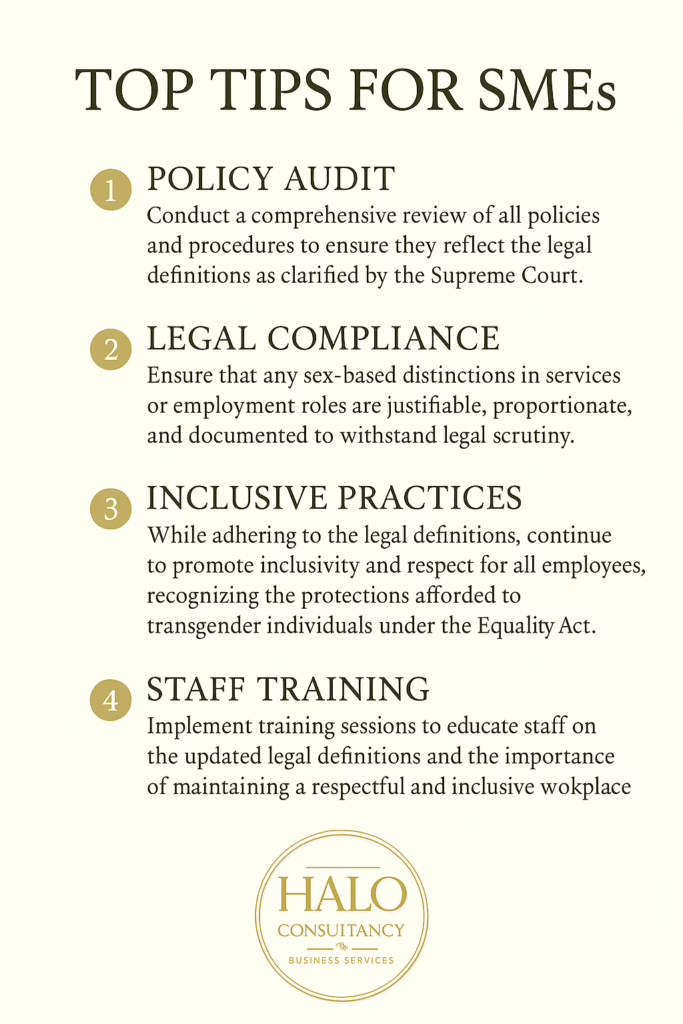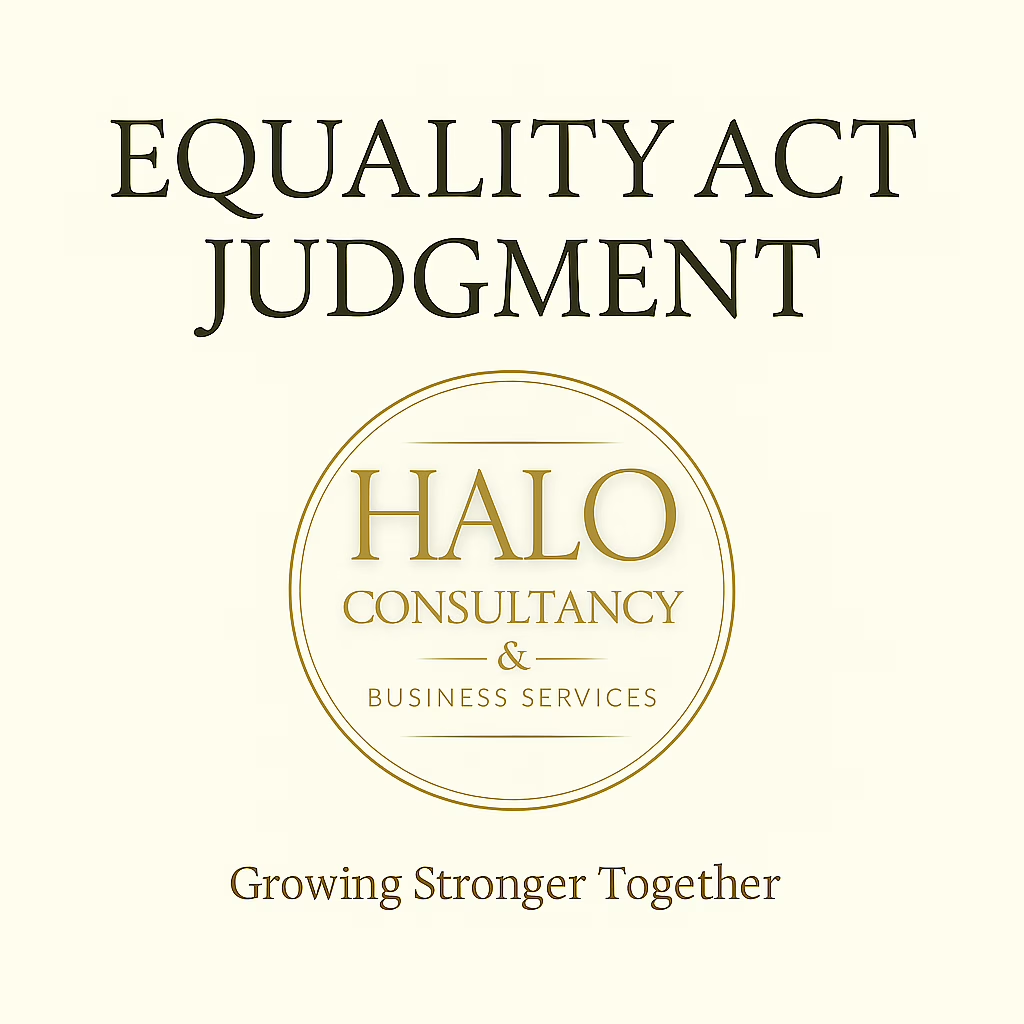Case Overview:
On 16 April 2025, the UK Supreme Court ruled in For Women Scotland Ltd v The Scottish Ministers that the terms “man,” “woman,” and “sex” in the Equality Act 2010 refer exclusively to biological sex assigned at birth. The case challenged Scottish Government guidance that allowed trans women with Gender Recognition Certificates (GRCs) to be treated as women under equality law.

Supreme Court Decision Highlights:
The legal terms “man,” “woman,” and “sex” refer to biological sex under the Equality Act 2010.
The inclusion of trans women with GRCs in the definition of “woman” was ruled if you could reproduce unlawful.
Trans individuals remain protected under the characteristic of “gender reassignment.”
What This Means:
Organisations (including SMEs) may lawfully differentiate by sex in single-sex spaces, services, or roles, if it is a proportionate means of achieving a legitimate aim (e.g. privacy, safety).
This does not require exclusion of transgender individuals — inclusive practices can still be adopted where appropriate.
Impact on SMEs:
Policy reviews are essential to align with the clarified legal definitions.
Staff training should reflect the distinction between sex and gender identity in law.
Any sex-based rules or role definitions must be justified and documented.
Top Tips for SMEs:

- Policy Audit: Review HR and operational policies to reflect biological sex-based definitions.
- Legal Compliance: Document and justify any sex-based role or space distinctions.
- Inclusive Practice: Continue respectful, inclusive approaches — trans individuals are still protected under the law.
- Training: Educate staff on the updated legal interpretations and respectful language.
For mor information or guidance, please either subscribe to our weekly news letter or complete the contact us now form below and we will get intouch shortly.
